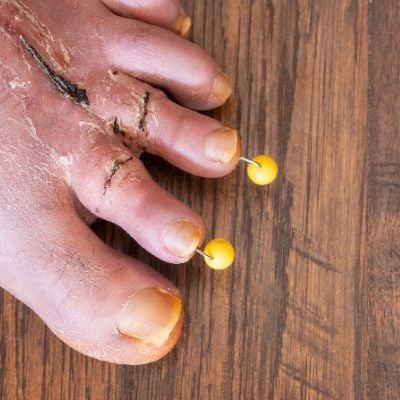 Hammertoe, a joint foot deformity, can significantly impact one's quality of life, causing discomfort and hindering daily activities. This article delves into Hammertoe surgery, exploring its intricacies, indications, procedures, and what individuals can expect during recovery.
Hammertoe, a joint foot deformity, can significantly impact one's quality of life, causing discomfort and hindering daily activities. This article delves into Hammertoe surgery, exploring its intricacies, indications, procedures, and what individuals can expect during recovery.
Causes and Symptoms
Before exploring surgical interventions, it's crucial to grasp the origins of Hammertoe. Often stemming from imbalances in toe muscles, genetics, or ill-fitting footwear, Hammertoe manifests as an abnormal bending of the toe joints. Recognizing symptoms such as toe deformity, pain, and difficulty wearing shoes is pivotal in seeking timely medical attention.
Indications for Hammertoe Surgery
Hammertoe surgery is typically recommended when conservative measures, like orthotics or toe exercises, fail to alleviate symptoms. Indications for surgery include severe pain, persistent deformity, and impairment in daily activities due to the condition. Consultation with a foot specialist helps determine whether surgery is the most appropriate.
Types of Hammertoe Procedures
- Tendon Transfer: This procedure involves repositioning or reinforcing the tendons surrounding the affected toe to restore proper alignment.
- Joint Resection: In cases where joint deformity is prominent, the surgeon may remove a portion of the affected joint to allow for a more natural toe position.
- Fusion: Fusion surgery aims to straighten the toe permanently by fusing the affected joint. While this restricts movement, it effectively addresses deformity and pain.
- Implant Insertion: In certain situations, implants may be utilized to correct Hammertoe, providing structural support and maintaining proper alignment.
Preparing for Hammertoe Surgery - What to Expect
Before surgery, individuals undergo a thorough evaluation, including medical history, imaging studies, and discussions about expectations. Understanding the surgical plan, potential risks, and postoperative care is essential for informed decision-making.
The Surgical Journey - Day of the Procedure
- Anesthesia Administration: Hammertoe surgery is typically performed under local anesthesia with sedation or general anesthesia, ensuring a pain-free experience.
- Incision and Correction: The surgeon makes incisions based on the chosen procedure, accessing the affected joint or tendon to correct the deformity.
- Closure and Recovery: Once the corrective measures are implemented, the incisions are closed, and the foot is bandaged. Patients are monitored in recovery before being released with postoperative care instructions.
Postoperative Care - Navigating the Healing Process
Recovery from Hammertoe surgery involves rest, elevation, and adherence to specific postoperative care guidelines. Pain management, wound care, and follow-up appointments with the surgeon are integral components of a successful recovery.
Embracing Life After Surgery - Long-Term Outcomes
Hammertoe surgery aims to alleviate pain, correct deformity, and enhance overall foot function and quality of life. Embracing postoperative rehabilitation exercises and lifestyle modifications ensures the best possible long-term outcomes.
Conclusion
In conclusion, Hammertoe surgery is viable for those grappling with persistent toe deformity and discomfort. By understanding the nuances of the condition, the surgical landscape, and the recovery process, individuals can make empowered choices to reclaim their mobility and stride toward a pain-free future. Seeking guidance from a qualified foot specialist is the first step towards Hammertoe relief.
Disclaimer:
The information on this website is provided for educational and information purposes only and is not medical advice. Always consult with a licensed medical provider and follow their recommendations regardless of what you read on this website. If you think you are having a medical emergency, dial 911 or go to the nearest emergency room. Links to other third-party websites are provided for your convenience only. If you decide to access any of the third-party websites, you do so entirely at your own risk and subject to the terms of use for those websites. Neither Michael Goldman, DPM, nor any contributor to this website, makes any representation, express or implied, regarding the information provided on this website or any information you may access on a third-party website using a link. Use of this website does not establish a doctor-patient relationship. If you would like to request an appointment with a health care provider, please call our office at (434) 295-9153.
